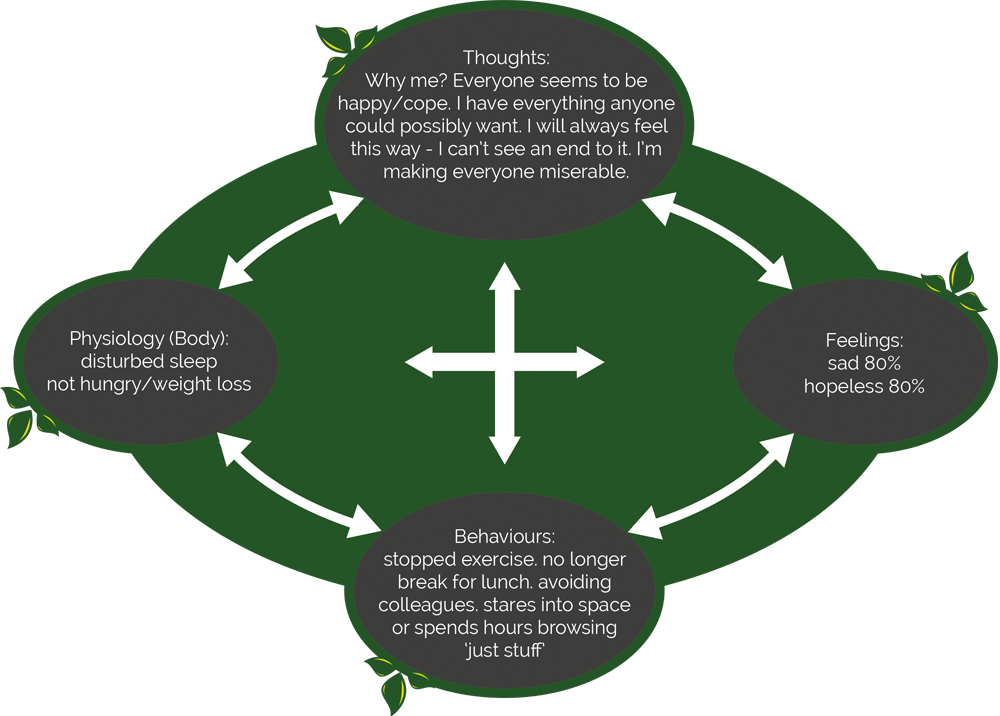Making sense of it – Danny’s formulation
Environment: Work
Danny is 52, married with 2 children and a highly successful businessman for a local company. Over the past 6 months, his wife in particular has noticed his mood lowering and increasing periods of irritability. His work colleagues have noticed that he rarely takes breaks for lunch, whereas before he would purposely arrange a team lunch once a month and would be seen on other occasions to at least eat something in the staff room. He has lost some weight, saying he’s not hungry. He is struggling to sleep – he either can’t get off to sleep or wakes early in the morning, around 4am, unable then to go back to sleep easily. He has gradually stopped going for a run as he has no energy and can’t be bothered, he can’t concentrate well enough to watch a movie or read like he used to, instead he spends time staring into space or browsing online at “just stuff”. He doesn’t want to see his GP as this is something he’d rather sort out himself, so he found a local therapist whilst surfing the internet, after his wife told him he needed to get some help, she was worried about him. He can’t make sense of why he is feeling this way, spending hours wondering “why me?” “will I always feel this way?” “I’m making everyone miserable” He thinks about all the things he possesses and his life, how others have it much tougher than him and are much worse off, which makes it even harder to understand.
TREATMENT
The early sessions aim to help Danny understand what’s keeping him in this place by identifying some of the maintaining factors of depression. Together, he and the therapist begin to establish some short-term goals to help Danny feel less stuck and to promote some hope that things can get better. Some examples were:
- to re-establish some structure to his day, such as regular mealtimes
- to re-introduce some gentle exercise and build up duration incrementally
- to introduce a mixture of activities which reflected Danny’s values such as ‘having a loving relationship with his wife’ and ‘leadership within the workplace’.
The remaining sessions then involved the introduction of well-established methods of improving mood and lifting depression, such as:
- activity scheduling where Danny kept a diary of his current activities for a period of a week to identify any changes he could make in line with his goals.
- Some sessions focussed on his thinking and the therapist helped Danny to spot any negative thoughts, typical of depression, and to begin to question these as opposed to taking them as factual statements about himself and his current situation.
PROGRESS
Danny thought the therapy suited him, as he valued learning and had always worked hard to find solutions for himself. He accepted, after a bit of pressure from his wife, thankfully, that this was one problem where it was okay to get a little help with sorting out. Within 10-12 sessions, he felt ready to be discharged and the last session focussed on identifying possible future triggers for the return of depression, but knowing the early signs and how to tackle them, he felt able to move forward.
![]()

